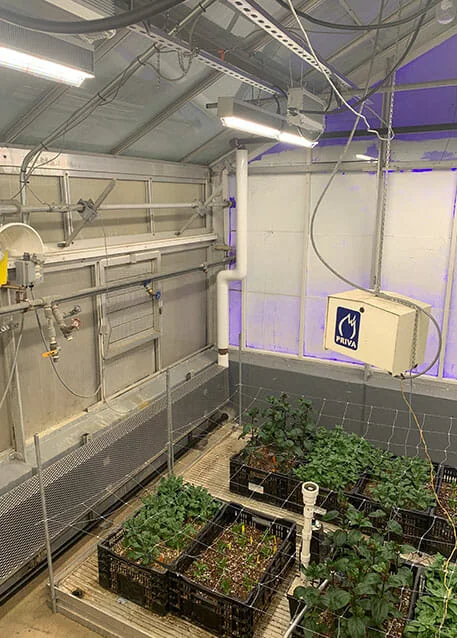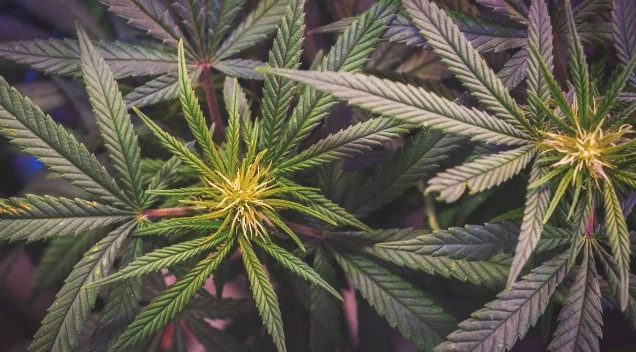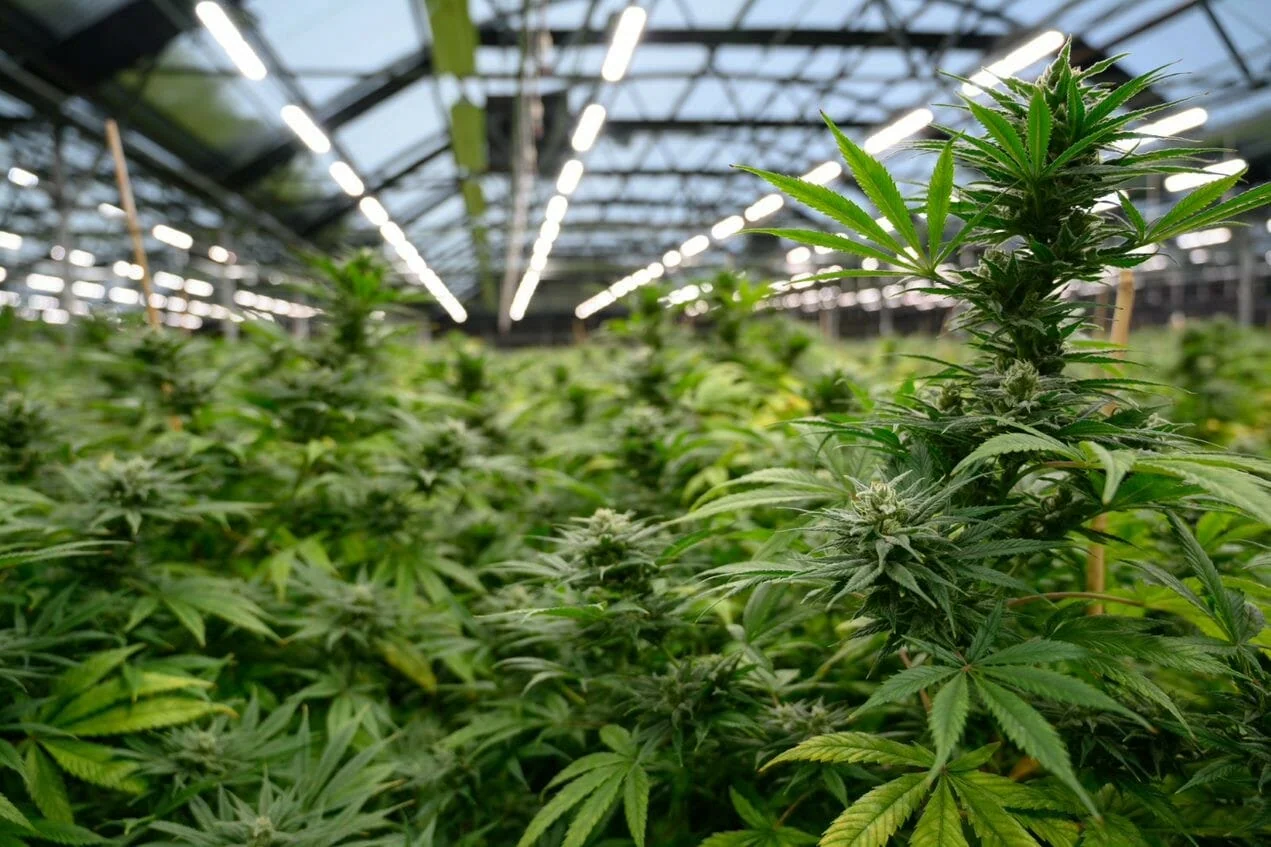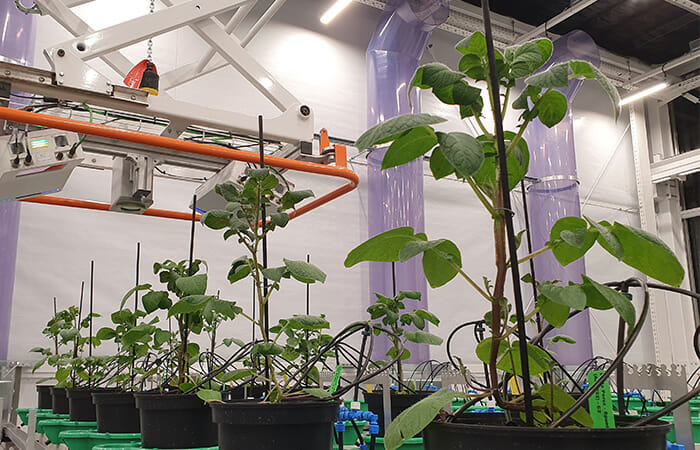Quantifying the Influence of Supplemental Light Quality on Time-to-Flower, Yield, and Quality of Several Long-Day Specialty Cut Flowers
About Michigan State’s Controlled Environment Research Program
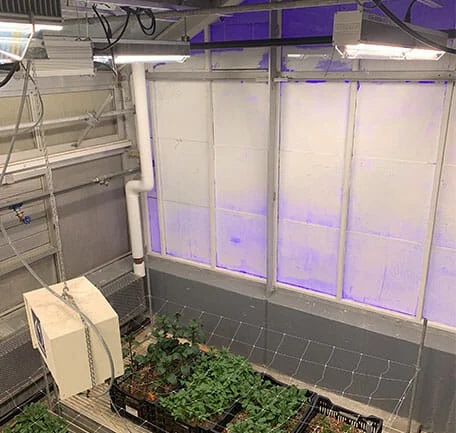
The controlled environment research program at Michigan State University focuses on the propagation and finished plant production of a wide variety of specialty crops – including floriculture, leafy greens, cut flowers, hemp, and herbs – grown in greenhouses, growth chambers, warehouse-based plant factories, and vertical farms. The primary goal of the program is to quantify how environmental parameters such as light (intensity, quality, and photoperiod), temperature (growing medium, water and air temperature), and carbon dioxide in controlled-environment agriculture (CEA) production influences crop timing, rooting, yield, quality, flavor, nutrition, color, and subsequent performance.
Their research team also investigates how to improve the energy-efficiency and sustainability of bedding plants, potted flowering plants, specialty cut flowers, and leafy green production. Their studies aim to:
- Minimize production timing and the overall input of nutrients, chemicals, substrate components, and energy.
- Develop and improve marketing and production protocols for new and existing crops.
The Experiment
Michigan State University has a rich history of plant agriculture research and outreach dating back to the origin of the institution. Today, their researchers work closely with commercial growers to share their most recent findings and help growers make informed decisions to improve production and efficiencies in their farms. In this experiment, Dr. Roberto Lopez, Associate Professor at MSU and his graduate student, Mr. Caleb Spall, are determining the effect of supplemental light quality on the yield, quality and time-to-harvest of several long-day specialty cut flower genera. In order to produce high-quality specialty cut flowers, cultivators must provide supplemental lighting in their greenhouses. This study helps analyze flower growth and development under multiple light spectra ranging from what is provided via HPS fixtures to broad-spectrum, sunlight-mimicking, LED lighting solutions.
In collaboration with Fluence scientists based in Austin, TX, the team deployed Fluence’s VYPR LED lighting solutions using BROAD R4 spectrum paired with dimmers for precise control of light intensity throughout the flowers’ growth cycle. Researchers hypothesize that when compared to a HPS lamps, the LED supplemental lighting spectrum treatments would reduce time-to-flower while increasing yield and quality of the cut flowers. Therefore, the results of the study will determine the ideal spectrum for a range of long-day cut flower species. So far, researchers are seeing improved time-to-harvest and finished quality under lights emitting red, blue, and far-red radiation.
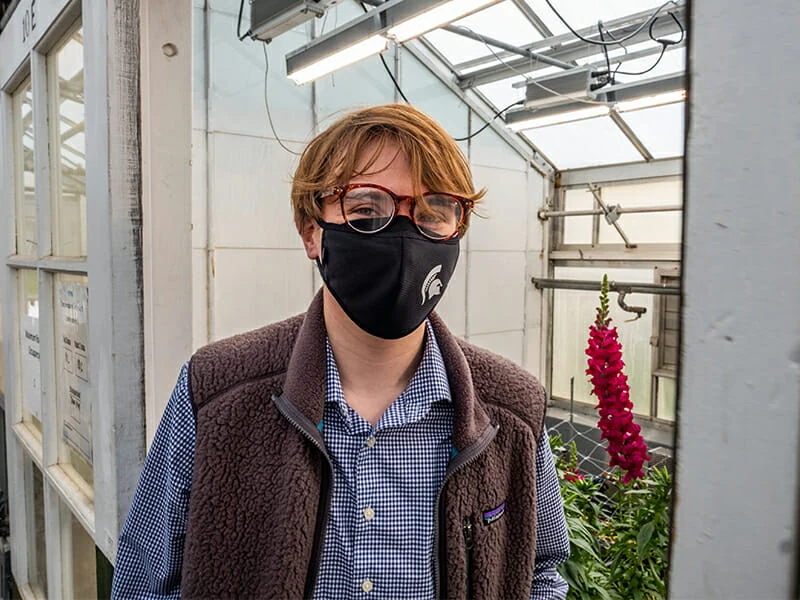
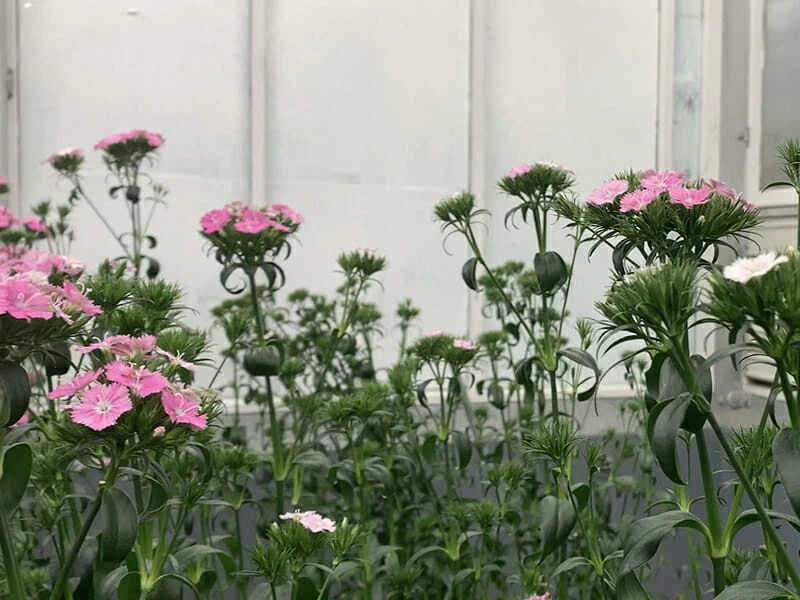
Grower Impact: Why it Matters
Supplemental lighting is crucial for growers producing long-day specialty cut flowers in regions with limited and inconsistent natural sunlight. The findings of this study will be shared with an industry that is eager to produce higher quality cut flowers for an ever-growing competitive market. By adopting innovative and educated growing techniques and technologies, growers can collectively contribute to a more sustainable and profitable future.
To see how other growers are leveraging the latest LED technology to grow fresh flowers check out our innovator spotlight featuring Peace Tree Farm, a commercial greenhouse farm producing fresh greens and ornamental flowers in Pennsylvania.
About Fluence’s Research Program
The Fluence Research team conducts studies through partnerships with leading research groups around the world while also conducting research in-house at the company’s Photobiology and Research Lab in Austin, Texas. Fluence partners with industry consultants to advise on the commercial viability of the team’s research studies while concurrently proving our lighting solutions at a commercial scale through grower case studies led by Fluence’s Horticultural Services team.
